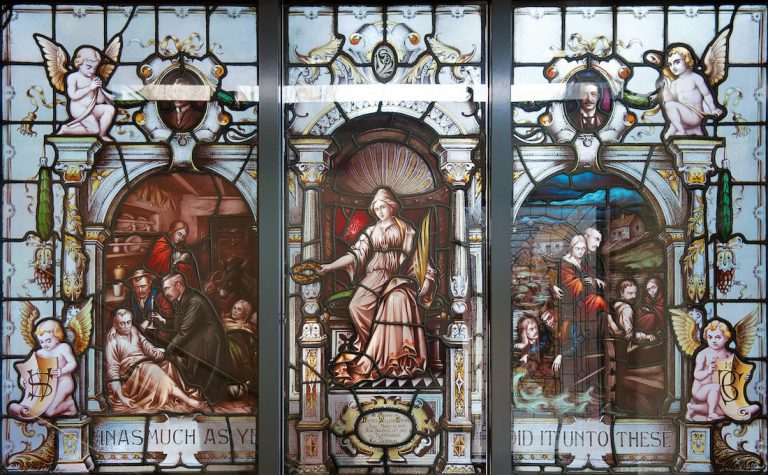History of QUBGP
A Brief History of General Practice at QUB

In 1958 Prof John Pemberton was appointed to the Chair of Social and Preventive Medicine at QUB. Pemberton (a student and later biographer of the celebrated Dr Will Pickles) believed that medical students should spend more curricular time in General Practice. Among the educational benefits, he highlighted: “opportunities of seeing disease in its early stages”, “experience in the treatment of the chronic sick and of infirm old people in the home” and “opportunities for practising preventive medicine”. He also recognised how for a medical student “going into the patients’ homes with the family doctor, he would receive a practical demonstration of the importance of such factors as overcrowding, ignorance of the simple rules of hygiene, and strained human relationships in the aetiology of ill health.”
In 1964 Dr William George Irwin was appointed as an occasional lecturer at the QUB medical school and in September 1971 as Chair of General Practice (the fourth only in the UK). Professor Irwin was the first person in the UK to establish a practice-linked Department of General Practice and following nine years of hard work four GP Practices came together under the roof of the newly built Dunluce Health Centre offering a clinical and training facility which boasted tutorial rooms, a small library and state-of-the-art consulting rooms that with patient consent could avail of the one-way see-through mirrors and video cameras to facilitate learning. At the height of GP involvement in the QUB medical curriculum, all students took part in a family attachment during 1st and 2nd year, with fourth year (4 weeks) and fifth year (6 weeks) mandatory clerkships based in GP and the wider community. Naturally curricula ebb and flow in accordance with current educational thinking and in 1997 the final year attachment was dropped and in later years the family attachment was reduced to year 1 year only.
In 2008 the School of Medicine at QUB was re-organised. Within this re-organisation Departments were replaced by centres for education and research. The educational mission of the School Of Medicine for medical students was thereafter conducted through the Centre for Medical Education. Given the critical mass and the relationships between the GP academics at Dunluce Health Centre many of the activities of the former Department of General Practice continued at Dunluce. With the passage of time however and with the retirement of colleagues (Prof Philip Reilly, Prof Margaret Cupples, Dr Drew Gilliland and Dr Keith Steele) and more recently the move of Dr Gerry Gormley to the position of Professor for the establishment of a Simulation Centre, the identity of the ‘Department or General Practice’ at Dunluce, familiar to many of our GP Tutors, has finally and sadly reached the end of its natural life.
Over the past 5 years, with the support of our GP Tutors we have made incremental steps towards increased time in our curriculum in General Practice. We have been engaged in active discussions with the Department of Health (DoH) in respect of priorities for the QUB medical curriculum and the allocation of SUMDE (Supplement for Undergraduate Medical and Dental Education) resources to facilitate development. These discussions led to the DoH revising the GP SUMDE formula and to making a firm commitment to support GP expansion. Underpinning all of this, the Health Minister in the publication ‘Health and Wellbeing 2026: Delivering Together’ (her departmental response to the Bengoa report) specifically highlighted increased curricular time in GP as a priority
However since the inception of the Clinical Skills Education Centre in the early 2000s GPs have played an active and ever-increasing role in Clinical Skills teaching for 1st and 2nd years as tutors in the Medical Biology Centre at Queens’ and by hosting groups of students in their Practices. At present more of these sessions are delivered in General Practice than in the hospital setting.
The C25 curriculum launched in Autumn 2020 will provide medical students with 25% of their undergraduate education in General Practice. The first students will graduate in 2025.